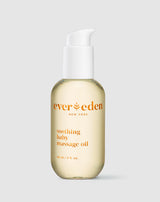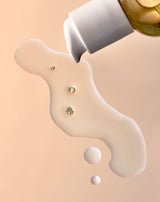The mainstream image of the American family is, thankfully, changing and becoming much more diverse than it ever was before. And the people who are catalyzing this change are mothers like EverMom Jeena Wilder, mother of four currently living in Texas with her husband, Drue, and four children—three biological kids who are biracial, and one adopted daughter who is white. In addition to sharing adorable family portraits, Jeena uses her platform to advocate for and educate on transracial families and share stories about the journey towards motherhood that are less understood and told. We spoke with her about transracial adoption, conversations about racial injustice with our kids, and how racism affects infant and maternal mortality.
Let's talk about how your beautiful family started. How did you and your husband meet?
My husband and I met at church camp when we were 17. We were each other’s Crush of the Week, and he wrote his number on the back of my camp book. He has horrible handwriting though, so when I tried calling that number, it didn’t work. I couldn’t find him on Facebook either, so I just thought we had a moment and that was it. Two years later, he messaged me on Facebook and said that he had been looking for me, but it still took him four or five years to actually ask me out. One summer, I needed someone to drive with me from Arizona to Georgia, and he volunteered himself. He flew in from North Dakota and drove with me the whole way, and by the time we arrived in Georgia, we were officially dating.
It really worked out. If we had met earlier and gotten married earlier, maybe we would have had more kids. But we were able to live separate lives and to have different experiences, which has probably made us stronger together now.
Tell us about what it was like when you and Drue decided to begin a family together.
My husband and I are already an interracial marriage. We knew that talking about race would be something that we would have to handle early on. So, when we adopted our white daughter, we were already having the right conversations with our children, so it was easy to continue doing it. It's always a conversation that we need. We're always learning. I grew up being black. I didn't have to read about racism—I dealt with it. But I still have room to learn because my children are biracial. I am learning things about biracial identity and racism that I didn't even know.
Why was adoption the right choice for you and your husband, and did that shift the dynamic in your family?
My husband’s family is built on adoption. His mother, his aunt, and his biological grandmother were all adopted. Adoption is part of his life, so he knew that he really wanted to adopt, and ever since I was young, I knew that I would take care of a child that wasn’t biologically mine. The biggest discussion we had about adoption was about how we wanted to adopt—whether it’s searching through an agency, finding a family, or letting it come to us. We decided to just let it come to us.
My adopted daughter is actually my husband’s biological niece. She came to us, and we knew that we could be that forever family for her. At the time, our youngest was six months old, my middle was three years old, and my oldest was four years old, and we tried to talk to them about it. It was actually really good in the beginning, but as time went on, my middle child struggled as she realized that her adopted sister wasn’t just a friend over for a really long play date—she’s here for life. Both of them are the same age, so my middle daughter felt like she didn’t have her own space anymore. We sat her down and explained to her that “This is your sister, and while we understand you need your space, you have to know that she is and always will be a part of you and this family.” Now, the two are actually inseparable, and call each other twins.
I just want others to know, though, that adopting is hard, and you have to be prepared to put in the work. You’re bringing up a child that had a past before they came to you, so we found it helpful to get therapy to make sure that we could do everything that we could to understand why our children are feeling or doing what they are doing. Our adopted daughter expressed herself primarily through crying, so we took her to therapy as well to provide her the resources to help herself process her emotions and to better communicate. The change that we’ve seen in four years has been so drastic, and I know that the work isn’t done.

It's beautiful to see such graceful parenting and a commitment to continuing to learn.
You also recently shared a powerful and heartbreaking story about your miscarriage four years ago to shed light on how systemic racism can truly affect all aspects of life. We're so sorry for your loss, and we're grateful for your willingness to speak about this.
At the time, I was just trying to get through it and understand the fact that I lost my baby. Writing that post was very cathartic because four years later, I was finally able to put it in words. I was 11 weeks pregnant at the time and woke up to light spotting and pain. My husband and I rushed to the ER, and the only thing they found that could be the cause of the light spotting and pain were kidney stones. I was admitted for observation, and my husband decided to go home to take care of our two children. I met my nurse, a white woman, who quickly took my vitals and left the room. The pain began to worsen, and I pressed the call button for help. My nurse came and gave me pain medication but said that it could only be administered every 3 hours. Four or more hours passed, and I fell asleep (or passed out from the pain) and woke up to myself bleeding all over my bed. I frantically pushed the call button, screaming for help, and the nurse came in and checked my bed, where she didn’t see any blood. I could tell she was annoyed, and as she got me to stand up, that’s when my worst nightmare became a reality. A gush of blood fell over the hospital floor, and it didn’t stop. As I was passing in and out of consciousness, I remember the ultrasound tech rushing in and telling me that I was going to lose my baby.
What would you tell others about white privilege and the need to speak up?
People didn’t understand how my miscarriage story relates to white privilege. The story doesn’t have to do with how hard my miscarriage was—it was about whether or not I got the proper care. I had already had two births prior to this; my mother and my husband are nurses, so I know what proper care looks like. I knew that I wasn’t getting the best care. The nurse at the hospital ignored me. So, for someone to come to me and say that my experience has nothing to do with racism just re-emphasizes the whole issue of racism. I know that black women are three-to-four times more likely to die due to pregnancy complications.
That’s why I want to tell stories that moms can understand and truly feel because we are the nurturers and the teachers of the next generations. You know, motherhood creates such a bond between you and other moms. If someone says white privilege doesn’t exist, I’m hoping that they can read my story written from one mom to another, so that they can better understand.
It's truly amazing how motherhood is such a strong bond that can help us empathize with one another. How do you speak to your children about race and the injustice in our society towards black and biracial people, especially since you have an adopted daughter who is white?
My youngest is three years old, and she definitely understands racism and differences in skin color. The first thing my son said was, “I’m not just black. I’m black and white,” but I had to explain to him that not everyone will see that. Even my one daughter who has a darker skin tone understands that she does have a darker skin tone than her siblings. My white daughter knows that people may look at her differently because she has a black mom.
If you were writing a letter to your children's older selves, what would you tell them?
I would say that I would love for them to understand that being respectful of other people's stories and journeys does not lessen your own story or journey.
Follow Jeena on IG at @JeenaWilder and her blog, Hey There Wilders.








